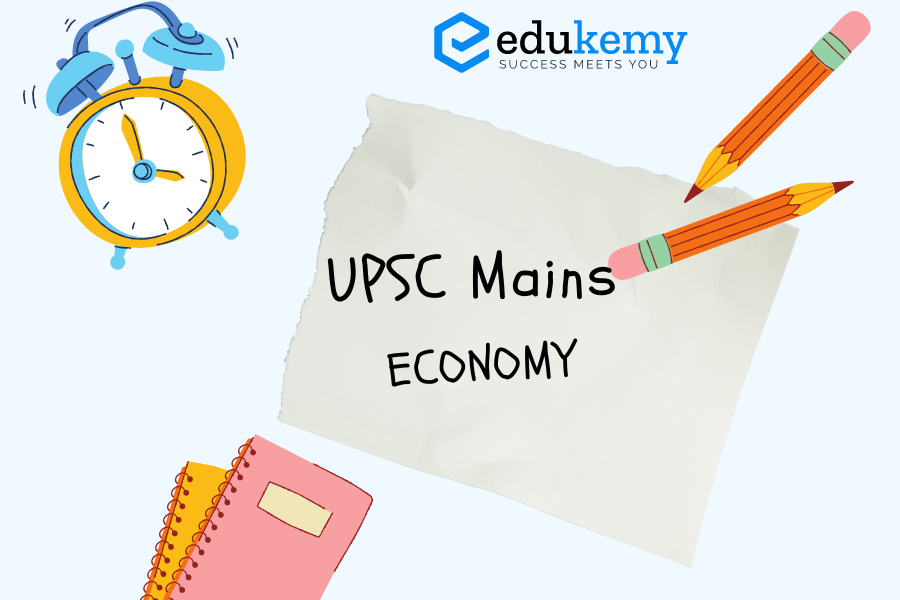
Contents
Introduction:
Sustainable development, a globally recognized concept, advocates meeting the present generation’s needs without compromising future generations’ ability to meet their own. This holistic approach seeks a balance between economic, social, and environmental goals for long-term prosperity.
Body:
The Concept of Sustainable Development:
- Environmental Sustainability: Stresses responsible resource use to prevent degradation, climate change, and biodiversity loss.
- Economic Sustainability: Promotes growth through eco-friendly practices and circular economies, minimizing resource use and waste.
- Social Sustainability: Ensures equitable distribution of benefits, addressing poverty, education, healthcare, and gender equality.
- Sustainable Development Goals (SDGs): The UN’s 2015 global goals aim to address poverty, quality education, clean energy, climate action, and responsible consumption by 2030.
Relevance to India’s Economic Growth:
- Resource Efficiency and Economic Growth: Prioritizes efficient resource use for long-term economic growth. Example: India reduced energy intensity by 10% from 2000 to 2022.
- Renewable Energy Transition: Transitioning to renewables benefits both the environment and the economy. Example: India’s 41 GW of solar capacity enhances energy security and job creation.
- Inclusive Development: Focuses on inclusive growth, reducing poverty rates and expanding domestic demand, positively impacting economic growth.
- Sustainable Agriculture: Enhances agriculture’s contribution through practices like organic farming, improving soil health and reducing chemical inputs.
- Green Infrastructure: Investments in green infrastructure, like metro systems, improve mobility, reduce pollution, and bring economic and health benefits.
Integrating SDGs into India’s Policy Framework:
- Policy Alignment: Align existing policies with specific SDG targets. Example: Pradhan Mantri Awas Yojana aligns with SDG 11 (Sustainable Cities and Communities).
- Multi-Level Governance: Promote collaboration between central, state, and local governments. Example: Swachh Bharat Abhiyan involves both central and state governments for SDG 6 (Clean Water and Sanitation).
- Data Collection and Monitoring: Establish a robust monitoring system using existing platforms like the National Statistical Office.
- Private Sector Engagement: Encourage private sector investment in SDG-aligned projects through incentives and partnerships.
- Civil Society and NGOs: Engage civil society and NGOs to mobilize support and hold governments accountable for SDG implementation.
- Budget Allocation: Allocate government funds to programs directly addressing SDGs. Example: MGNREGA contributes to SDG 1 (No Poverty).
- Innovation and Technology: Promote innovation and technology development supporting SDGs, such as renewable energy solutions and efficient agriculture practices.
- Global Cooperation: Collaborate internationally, participate in global discussions, and share best practices for SDG implementation.
Challenges:
- Poverty and Inequality: A large population in poverty and income inequality challenges SDG 1 (No Poverty) and SDG 10 (Reduced Inequality).
- Environmental Degradation: Severe challenges in balancing economic growth with SDG 13 (Climate Action) and SDG 15 (Life on Land).
- Education and Healthcare: Disparities in access, quality, and infrastructure challenge SDG 4 (Quality Education) and SDG 3 (Good Health and Well-being).
- Urbanisation: Rapid urbanization presents challenges for SDG 11 (Sustainable Cities and Communities).
- Gender Equality: Gender discrimination remains a challenge for SDG 5 (Gender Equality).
- Agriculture and Food Security: Ensuring food security (SDG 2) while promoting sustainable agriculture is complex, especially with water scarcity and changing climate.
Conclusion:
Sustainable development is not just a theoretical concept but a practical necessity for India’s economic growth. Adopting a comprehensive sustainable development agenda can secure economic growth while safeguarding the environment and promoting social well-being.
In case you still have your doubts, contact us on 9811333901.
For UPSC Prelims Resources, Click here
For Daily Updates and Study Material:
Join our Telegram Channel – Edukemy for IAS
- 1. Learn through Videos – here
- 2. Be Exam Ready by Practicing Daily MCQs – here
- 3. Daily Newsletter – Get all your Current Affairs Covered – here
- 4. Mains Answer Writing Practice – here

